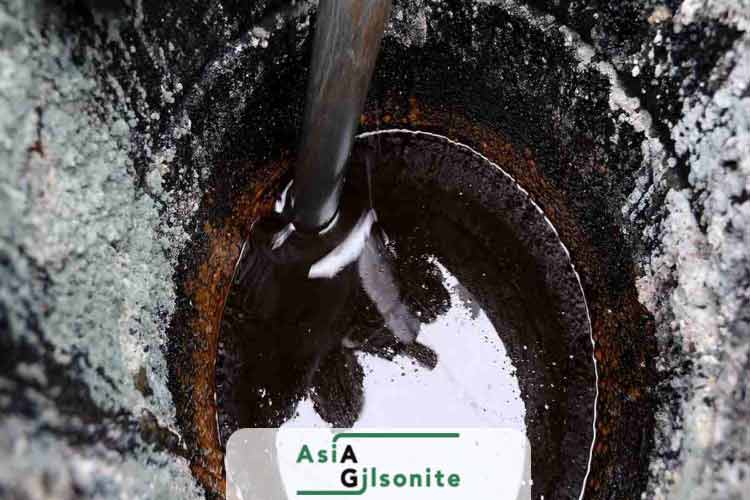Table of Contents
ToggleBitumen is an extensively-utilized hydrocarbon in construction, used mostly for the production of asphalt. It is a dark, sticky substance obtained through the process of crude distillation, which involves mixing it with other materials such as sand, thereby manufacturing asphalt concrete which is commonly used to pave roads, seal roofs and for numerous other purposes. Even though its applications are hugely beneficial, one of the most frequently asked questions in connection to bitumen is whether its use is potentially toxic or not; we’re going to get through this question in the following context.
Uses and Applications of Bitumen
Asphalt is an indispensable material in many construction projects, and its use has become integral. From securing aggregates (sand, gravel, or crushed stone) in roads, to creating fissure-free infrastructure, asphalt binds, seals, and endures. It is no wonder that bitumen is a commonly used material for waterproofing roofs, and adding an extra layer of durability and slip resistance on pavement surfaces.
Beyond road projects, asphalt is an almost ubiquitous presence in the development of airports, railways, as well as being fundamental to the production of aluminum, lubricants, and adhesives. Its versatility, strength, and binding power make Gilsonite an invaluable part of our world.
Advantages of Bitumen
Bitumen is a popular choice for construction, due to its numerous advantages. Not only does it act as an effective binding agent, capable of providing stability to structures, roads, and concrete, but its versatility is unmatched.
Asphalt can be used in different types of concrete, from hot mix to warm mix to cold mix, making it fit for any kind of construction. Moreover, the cost of bitumen is very appealing, making it a more cost-effective option than other construction materials. All in all, asphalt is a superior choice when it comes to building.
Types of Bitumen
Asphalt is a versatile material with a range of unique applications, making it an essential component of many modern building projects. It is divided into four types that vary in hardness and purpose, offering contractors specialized options for specific job specifications.
Bitumen 30/40, 40/50, 60/70, and 80/100 refer to the penetration rate of the bitumen, with the higher the number, the softer the material. Despite slight distinctions in softness, these types of Gilsonite share many features, most notably their temperature resilience, durability, and exposure resistance.
When opting for a type of asphalt, one must be mindful of the environmental conditions and other performance metrics that the material may face, such as road traffic or temperature fluctuations. This knowledge is integral to make the best selection for any project.
Chemical Properties of Bitumen
Bitumen is a complex and diverse hydrocarbon, composed of a number of sub-components that play an integral role in its performance. The components of significance are asphaltenes; these heavy hydrocarbons impart the asphalt its adhesive nature.
Resins, being the lightest of the hydrocarbon family, give this mineral its flexibility and allow for the material to work better. Aromatics act as stabilizers, ensuring durability and extended life of Gilsonite, as they keep asphaltenes under control. Overall, these chemical properties of asphalt enable a variety of uses and make it invaluable in many applications.
How toxic is Bitumen?
Bitumen, on its own, is not toxic; it’s a natural substance that doesn’t contain any prospective harm in its undiluted form. However, during the process of production, traces of hazardous, volatile organic compounds such as benzene, toluene and xylene can contribute to the overall risks posed by asphalt.
Moreover, asphalt fumes, when heated to high temperatures, can release harmful particulates which can cause respiratory diseases if inhaled in large quantities. This is further compounded by the fact that the irritating qualities of the fume can cause irritation of eyes, nose, throat and lungs upon exposure.
To counter this, industrial safety regulations require the installation of good ventilation systems and the equipping of personnel with effective personal protective gear to protect workers from the potential hazards.
Safety standards and Regulations
Adhering to stringent safety standards, bitumen production and usage is deemed safe for both humans, the environment and air quality. The Occupational Safety and Health Administration (OSHA) lays out exact requirements for the safe handling of asphalt, such as appropriate protective gear, including eyewear, respirators, jackets, safety footwear, and gloves; and capping exposure levels at 5mg/m³ over an 8-hour period.
Moreover, workers must receive additional training on asphalt safety, and how to use personal protective equipment, in case of an emergency or accident. Meanwhile, stringent regulations require bitumen storage and accidental spillage prevention. Facilities must be fitted with proper ventilation systems and warning signs, so workers and others are informed of any potential hazard.
Additionally, environmental protection is of utmost importance, hence, companies must have appropriate waste management plans in place to dispose of asphalt waste and hazardous materials properly.
Tests Regarding Bitumen’s Quality and Safety
Gilsonite quality and safety must be tested extensively before it can be used for construction purposes. The ‘Flash and Firepoint Test’ is one such test which is used to determine the flammability of this chemical material.
Specifically, it measures the temperature at which bitumen begins to emit flammable vapors, as well as the temperature the vapors ignite. As the use of bitumen in liquid form entails safety hazards, this is an essential test.
Similarly, the ‘Solubility Test’ helps to evaluate the purity of asphalt, by measuring its solubility in different solvents.
In general, lower solubility suggests less contamination and therefore, more suitability for construction. Thus, both of these tests are paramount for the evaluation of asphalt and will continue to be used to make sure that this material is safe to use.
Conclusion
In conclusion, bitumen is a versatile material, known for its affordability yet boasting a plethora of potential applications in the construction world. Taking into consideration it must be handled with care, and safety regulations have to be met, it is essential to handle this chemical responsibly, as human health and environmental safety are paramount.
Meanwhile, when done with the correct measures, asphalt is a great instrument in contemporary construction and renovation. It is clear to see this material, when used with caution and expertise, can be beneficial whilst still adhering to safety protocol.




